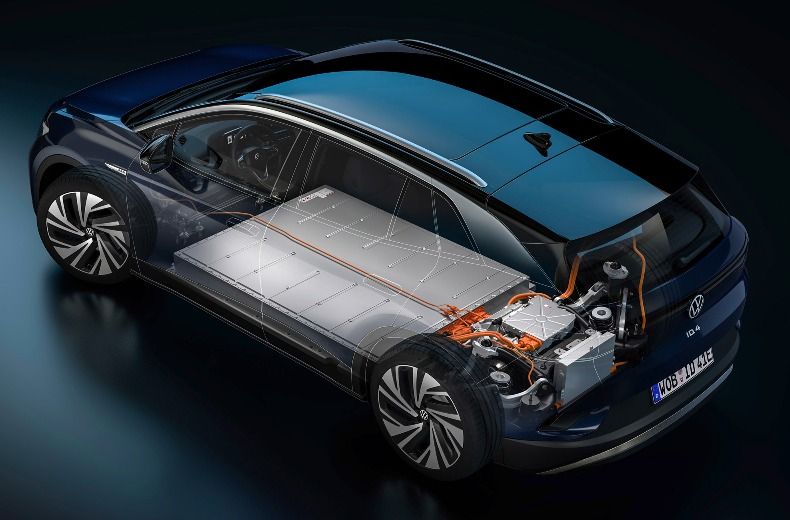Electric car batteries degrade and become less effective over time and use. Over several years and many thousands of miles, an electric car's range will gradually reduce, with charging also having an effect on its lifespan.
However, there are ways to reduce the degradation, and it shouldn’t be a deal-breaker if you are considering buying or leasing an electric vehicle (EV). Unlike in many smaller electronic items, battery losses in cars are small and incremental.
Why do electric car batteries degrade over time?
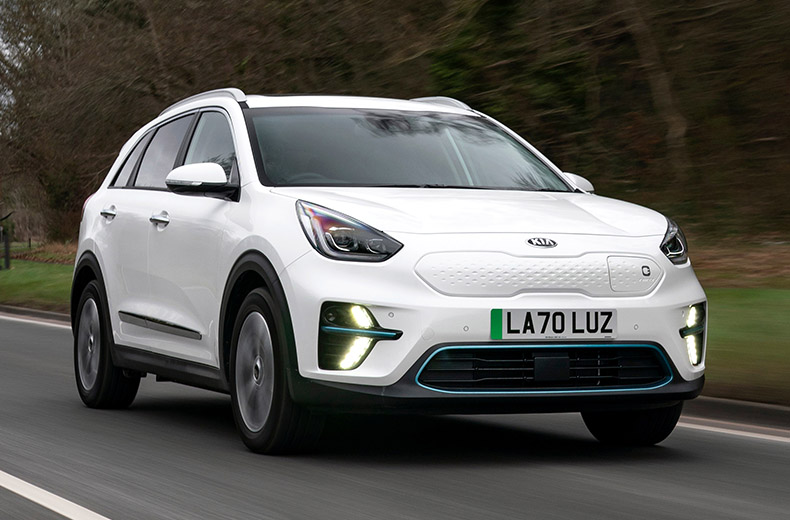
Most EVs use lithium-ion batteries. These degrade over hundreds of charge/use cycles, becoming less effective in the process.
However, drivers can expect well in excess of 10 years or 100,000 miles of use – you'll find examples with twice that mileage – from an electric car before the reduction in range becomes impractical. As such, the lifespan of an EV is not dissimilar to a conventional petrol or diesel vehicle.
Battery degradation won’t hugely affect the EV’s performance in terms of acceleration, refinement or cruising ability. It will lessen the range, but even an eight-year-old Nissan Leaf at the UK's average mileage for its age would likely see losses of around 20% versus new, according to independent tests.
How to preserve your electric car’s battery
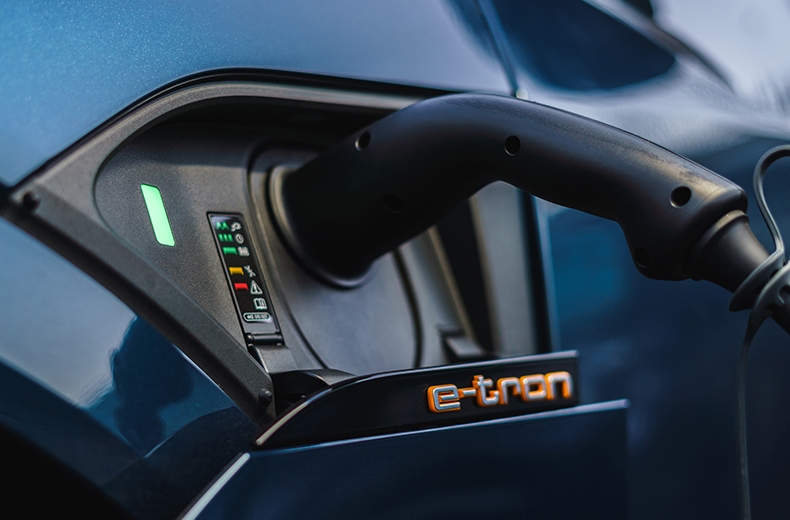
Regularly fully charging or entirely depleting your EV’s battery can degrade it more quickly. Keeping the charge level between around 20% and 80% is optimum to make your battery last longer. It’s no coincidence that car makers often quote charging times to 80%, rather than full.
The frequent use of DC rapid chargers can also have a detrimental effect on the life of EV batteries. Rapid charging is the quickest way to refill an EV battery, and the fastest public charge points can top them up to 80% in 30-40 minutes.
EVs have sophisticated battery management systems to help calm the effects of rapid charging and protect the batteries from overcharging. This is why rapid chargers begin to ‘taper’ (reduce the power they deliver) once batteries are more than 80% full. Despite this, studies have shown battery degradation can increase when compared to slower AC charging.
If you’re charging more slowly via a home charge point or a domestic socket, charge overnight when the ambient temperature is lower to preserve battery health. Another tip is to use the car as soon as you can after it has finished charging.
If your EV is going to sit around without being driven or only used locally, don’t fully charge it first. Keep the battery around half full, as this is better for its long-term health.
Aggressive acceleration and hard use also speed up battery wear. It will also reduce the range between charges, so it’s much better to take things slow and steady. Avoid extreme temperatures if possible, too, as these can reduce the car’s range and battery performance.
- All you need to know about electric cars
- Electric car leasing explained – EV financing vs buying
- Contact your local mobile mechanic if you experience car battery issues

SALE – up to 40% off*
Roadside & Recovery from £5.29 a month*
• Cheaper than AA Price Promise or we’ll beat by 20%^
• We get to most breakdowns in 60 mins or less
• Our patrols fix 4/5 breakdowns on the spot

How long are warranties on electric car batteries?
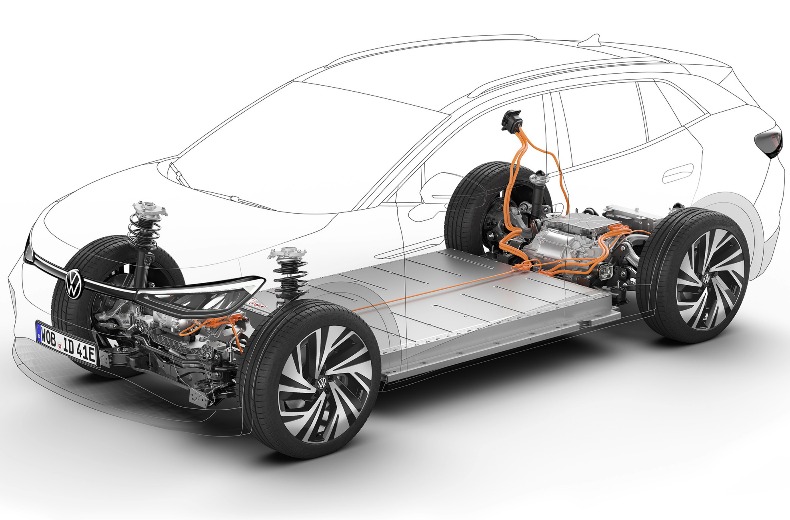
Most new electric car batteries enjoy warranties of around eight years and 100,000 miles. This usually far exceeds the cover offered on other components of the car, which gives you an idea of the battery’s reliability.
Such warranties typically guarantee a minimum of 70% battery capacity (and therefore range) at the end of the cover period.
We've outlined some of the most popular manufacturer warranties (correct at time of writing) for new electric cars below.
| Manufacturer | Warranty |
|---|---|
| Audi | 8 years/100,000 miles |
| BMW | 8 years/100,000 miles |
| Citroen | 8 years/100,000 miles |
| Fiat | 8 years/100,000 miles |
| Honda | 8 years/100,000 miles |
| Hyundai | 8 years/100,000 miles |
| Jaguar | 8 years/100,000 miles |
| Kia | 8 years/100,000 miles |
| Mercedes-Benz | 8 years/100,000 miles |
| MG | 7 years/93,000 miles |
| Mini | 8 years/100,000 miles |
| Nissan | 8 years/100,000 miles |
| Peugeot | 8 years/100,000 miles |
| Renault | 8 years/100,000 miles |
| Skoda | 8 years/100,000 miles |
| Tesla (Model S/X) | 8 years/150,000 miles |
| Tesla (Model 3/Y) Rear-Wheel Drive | 8 years/100,000 miles |
| Tesla (Model 3/Y) Long Range/Performance | 8 years/120,000 miles |
| Vauxhall | 8 years/100,000 miles |
| Volkswagen | 8 years/100,000 miles |
- Types of electric vehicles – EVs explained
- Buy a car with confidence with RAC Cars
- Electric vehicle range – how far can I drive in an EV?
Can electric car batteries be recycled?
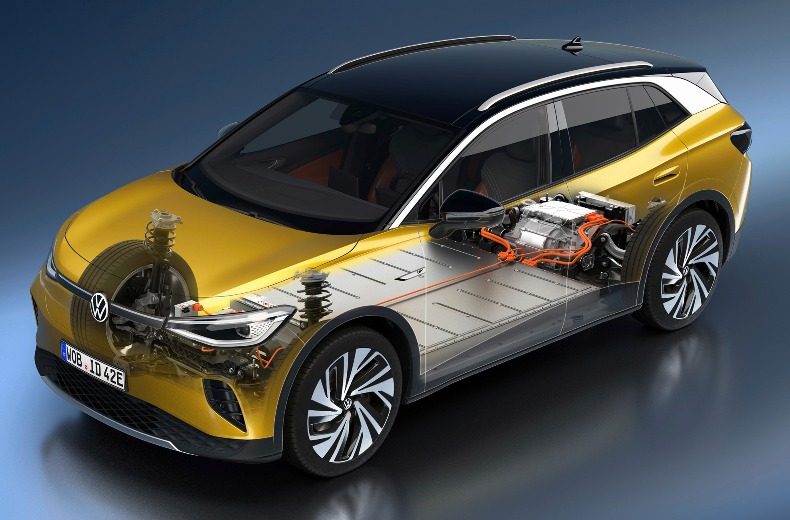
Replacing the batteries in an older electric vehicle out of warranty probably isn't viable for most people. Battery technology is moving on all the time, while a typical modern EV battery can cost thousands to buy. However, older EV batteries can be recycled and used for other purposes.
Once the usable in-car lifespan of electric car batteries is over, the most common ‘second life’ for them is for domestic or commercial energy storage. This includes retaining the electricity produced by home solar panels during the daytime for release at night.
Nissan, Renault, BMW and Tesla, for example, offer home and commercial energy storage solutions using second-hand EV batteries. Find out more about electric vehicles' environmental impact.
Conclusion
The decline in EV battery capacity over time is only really of concern if you're buying a used car – or planning to retain a new one for many years. Even then, any loss of range will only be slow and gradual.
The UK government is promising to implement a battery health certification scheme for used EVs, meaning used car dealers can demonstrate the car's battery still has plenty of life left in it.
For all intents and purposes, the lifespan of EV batteries and therefore the useful ‘first-life’ of an EV itself is broadly comparable to that of a traditional combustion car.
Even after the EV and its battery are having a second life off the road, the ability – and commercial incentive – to recycle used EV batteries should soften any lingering long-term environmental doubts or concerns.
- The road to electric – in charts and data
- Are electric cars really better for the environment?
The RAC is the first breakdown assistance company in the UK to introduce a mobile charging unit for electric vehicle owners who have run out of charge. We are the number one provider of breakdown cover for electric vehicles. Find out more about RAC EV Boost.
Are you sold on EVs? Or are you planning on holding on to your petrol car as long as possible? Leave us a comment below.

SALE – up to 40% off*
Roadside & Recovery from £5.29 a month*
• Cheaper than AA Price Promise or we’ll beat by 20%^
• We get to most breakdowns in 60 mins or less
• Our patrols fix 4/5 breakdowns on the spot


